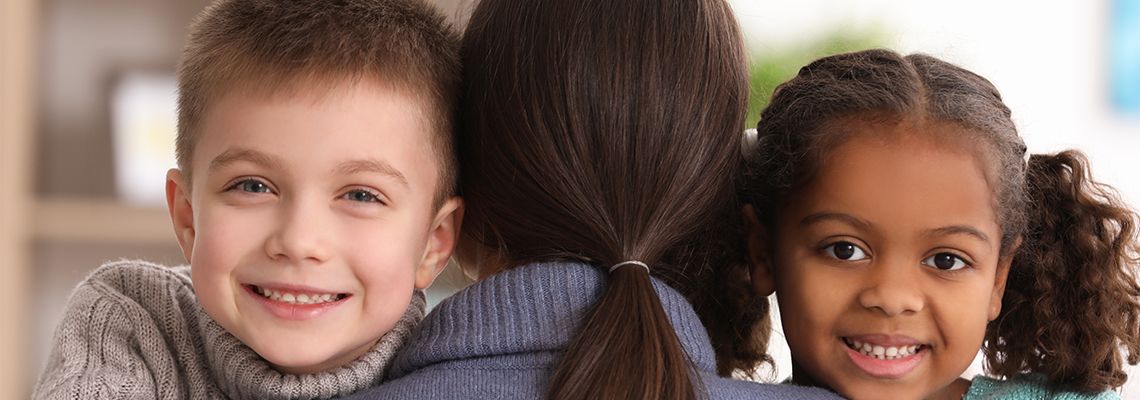
Open Vs Closed Adoption
Prospective adoptive parents often must choose between an open and closed process. Both options have their own set of benefits and challenges that can significantly impact everyone involved. If you're navigating this life-changing decision, it's crucial to understand each type of adoption thoroughly.
At Alexander Grossman Attorneys at Law, we have over 45 years of experience helping families in Skokie, Illinois, Cook County, and Lake County make informed decisions about adoption. Let's break down the distinctions between open and closed adoption to help you decide which route might be best for you.
What Is Open Adoption?
In an open adoption, the adoptive parents and birth parents maintain some form of ongoing communication. This can range from occasional letters and photos to regular visits and shared holidays. The level of openness varies widely and is typically agreed upon by both parties before finalizing the adoption.
Benefits of Open Adoption
A significant advantage of open adoption is that it allows the child to maintain a connection with their birth family. This can help the child develop a clearer sense of identity and heritage. Additionally, open communication can provide answers to any medical history questions that may arise in the future.
Challenges of Open Adoption
Open adoption can also come with its own set of challenges. It requires setting boundaries and managing relationships, which can be difficult for some families. Both adoptive and birth parents must be comfortable with the level of openness and committed to maintaining healthy communication.
What Is Closed Adoption?
In a closed adoption, there is no contact between the birth parents and the adoptive family after the adoption is finalized. All identifying information is kept confidential, and the adoptive family raises the child without any involvement from the birth parents.
Benefits of Closed Adoption
A closed adoption can provide a sense of privacy and security for the adoptive family. It allows the adoptive parents to bond with the child without potential interference from the birth parents. Additionally, it can offer a clean break for birth parents who may find it emotionally challenging to maintain contact.
Challenges of Closed Adoption
The main drawback of closed adoption is the lack of access to the child's medical history and background information. This can be problematic if the child develops health issues later in life. Additionally, the child may struggle with identity questions as they grow older, not knowing their full story.
Factors to Consider When Choosing Adoption Type
Several important factors must be considered to ensure that the adoption path aligns with the needs and circumstances of all parties involved.
Emotional readiness: An open adoption requires ongoing emotional involvement and communication, while a closed adoption demands acceptance of limited information.
Privacy and boundaries: Consider how comfortable you are with sharing your life with the birth parents. In an open adoption, boundaries need to be clearly defined and respected by both parties to ensure a healthy relationship.
Child's best interest: Think about how each option will affect the child's emotional and psychological well-being. Open adoption may offer more answers to identity-related questions, while closed adoption can provide a sense of closure.
Support systems: Whether you opt for open or closed adoption, having a strong network of family, friends, and professionals can significantly impact your experience. You need to assess whether you have the resources and guidance to handle the emotional complications of open adoption or the independence and privacy that a closed adoption may offer. Adequate support can help address any challenges that arise and create a healthy environment for the child.
Adoption Laws in Illinois
In Illinois, adoption laws protect the rights of all parties involved. The state allows both open and closed adoptions, and the specifics are usually determined by mutual agreement. Illinois law also requires the termination of parental rights before an adoption can be finalized, ensuring that the adoptive parents have full legal custody.
Consent and Confidentiality
Consent from the birth parents is necessary for any adoption in Illinois. Once consent is given, it is generally irrevocable, making the decision final. Regarding confidentiality, Illinois law permits the sealing of birth records in closed adoptions, but these can be accessed later under specific circumstances, such as medical necessity.
Post-Adoption Agreements
While not legally enforceable, post-adoption agreements can be made in open adoptions to outline the terms of contact between the birth and adoptive families. These agreements should be made with the best interests of the child in mind and can include provisions for updating contact terms as the child grows older.
Adoption Attorneys in Skokie, Illinois
Family-owned and operated, Alexander Grossman Attorneys at Law has been serving Skokie, Cook County, and Lake County for over 45 years. We treat clients like family, so you receive one-on-one attention and personalized service. We handle your case with the utmost care and dedication, providing hands-on support from start to finish. With our experienced attorneys, you can trust that your adoption process will be handled with compassion and professionalism.
If you're considering adoption in Skokie, Illinois Cook County, or Lake County, contact us today. We will help you make the best decision for your family and offer the support you need throughout the adoption process.

